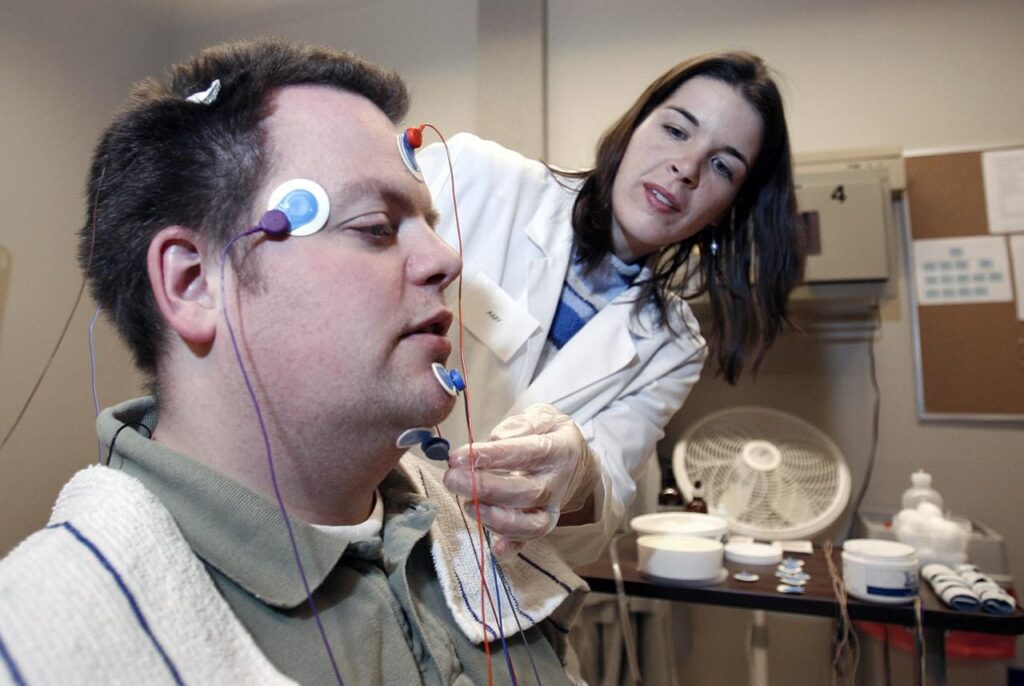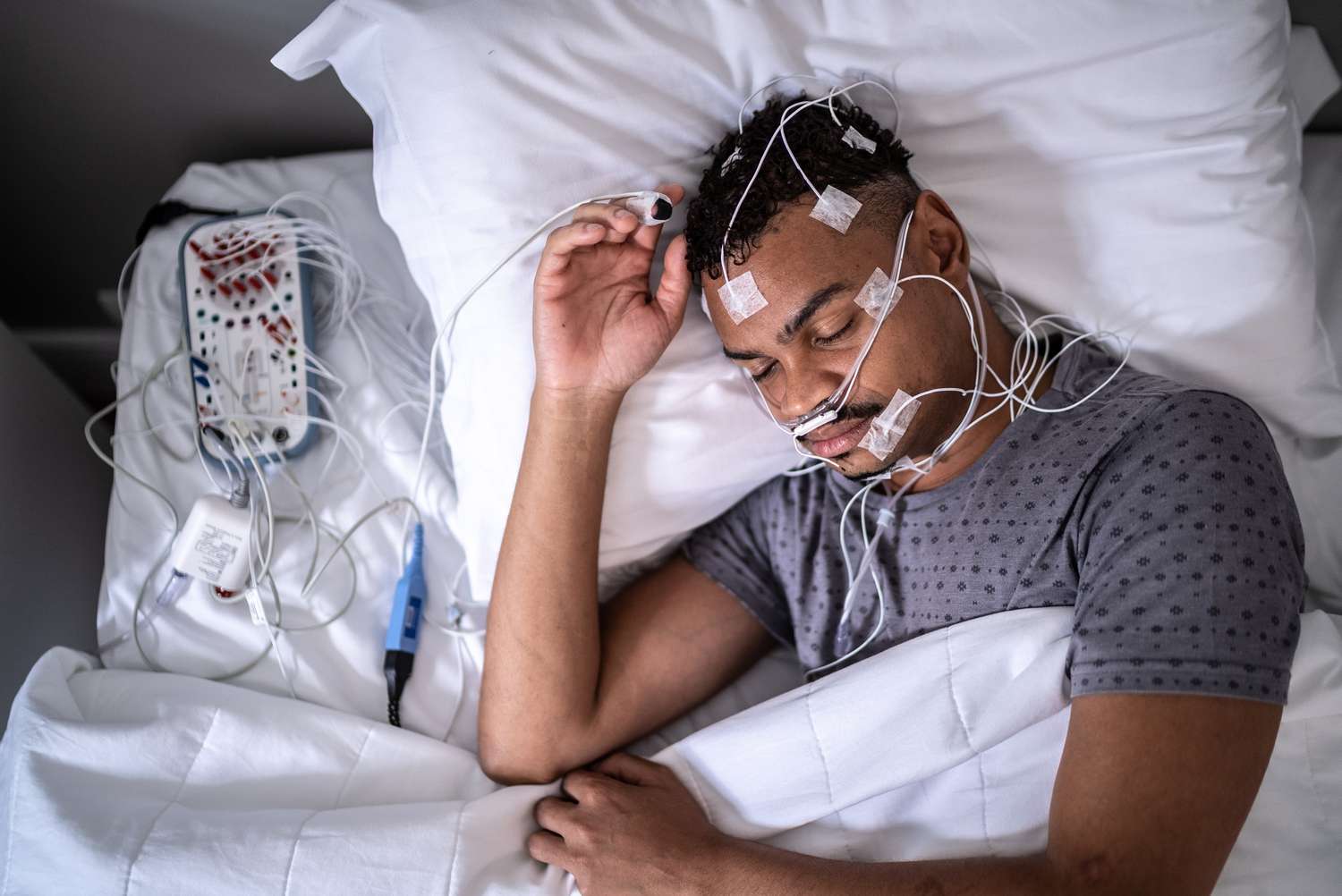For many people, sleep disorders can significantly impact daily life, affecting mood, productivity, and overall health. Understanding what to expect regarding sleep disorders testing can be crucial in obtaining a proper diagnosis and treatment. This article will guide you through the various aspects of sleep disorders, the importance of testing, and how to prepare for your sleep evaluation.
Understanding Sleep Disorders
Sleep disorders encompass a range of conditions that can disrupt your sleep patterns, health, and quality of life. These disorders can be caused by a variety of factors, including stress, underlying medical conditions, or lifestyle choices. Knowing the different types of sleep disorders can help individuals recognize their symptoms and seek treatment.
Understanding what happens during sleep disorder test can alleviate any anxiety associated with the process. While the tests may vary, they generally follow a structured approach to collect essential data on your sleep behavior.

Common Types of Sleep Disorders
Some of the most prevalent sleep disorders include:
- Insomnia: Difficulty falling or staying asleep, leading to fatigue and irritability.
- Sleep Apnea: Characterized by pauses in breathing or shallow breaths during sleep, often resulting in loud snoring and daytime exhaustion.
- Restless Legs Syndrome (RLS): An uncontrollable urge to move the legs, typically due to uncomfortable sensations, making it hard to sleep.
- Narcolepsy: A chronic condition characterized by overwhelming daytime drowsiness and sudden attacks of sleep.
Each disorder presents unique symptoms and challenges, thus understanding them is essential for effective management and treatment. For instance, insomnia can be acute or chronic, with acute insomnia often triggered by stress or significant life changes, while chronic insomnia may stem from long-term health issues or mental health disorders. Similarly, sleep apnea can vary in severity, and its treatment may involve lifestyle changes, the use of CPAP machines, or even surgical interventions in more severe cases.
The Impact of Sleep Disorders on Health
Untreated sleep disorders can lead to a multitude of health issues. Research shows that chronic sleep deprivation significantly increases the risk of developing conditions such as obesity, diabetes, cardiovascular diseases, and weakened immune function. Furthermore, mental health can suffer as well, leading to anxiety, depression, and cognitive impairments. The interplay between sleep and mental health is particularly significant; for example, individuals with depression often experience sleep disturbances, which can exacerbate their symptoms and create a vicious cycle. Read more about depression on https://www.psychiatry.org/patients-families/depression/what-is-depression
It is vital to recognize that sleep is essential to overall health. Seeking treatment for sleep disorders not only improves sleep quality but can also enhance overall well-being. Moreover, establishing a consistent sleep routine, practicing good sleep hygiene, and making lifestyle adjustments—such as reducing caffeine intake and engaging in regular physical activity—can significantly contribute to better sleep outcomes. Understanding the importance of sleep can empower individuals to prioritize their health and seek the necessary support to combat sleep disorders effectively.
The Importance of Sleep Testing
When experiencing symptoms of sleep disorders, consulting a healthcare professional is crucial. They may recommend sleep testing to gather comprehensive data about your sleep patterns. This testing is a key step in ensuring accurate diagnosis and effective treatment.
Identifying the Need for Sleep Testing
Several indicators can suggest the need for sleep testing, including:
- Frequent daytime fatigue or excessive sleepiness.
- Snoring or observed breathing interruptions during sleep.
- Consistent difficulty falling asleep or staying asleep.
- Involuntary leg movement during sleep.
If any of these symptoms resonate, it may be time to discuss testing options with your healthcare provider. It’s important to note that sleep disorders can significantly impact not only your physical health but also your mental well-being. Chronic sleep deprivation has been linked to anxiety, depression, and cognitive impairment, making it essential to address these symptoms promptly.

The Role of Sleep Testing in Diagnosis
Sleep testing provides valuable insights into your sleep patterns and physiological responses during sleep. By using various techniques, healthcare providers can accurately diagnose sleep disorders and recommend appropriate therapies. Understanding the underlying causes of sleep disturbances can lead to more tailored treatment plans that address individual needs.
What to Expect During Sleep Disorders Testing
Different types of sleep tests, such as polysomnography (PSG) or home sleep apnea tests, can monitor brain waves, heart rate, breathing patterns, and oxygen levels to identify potential sleep disorders. Polysomnography, for instance, is often conducted in a sleep lab and offers a comprehensive analysis of sleep stages and cycles, allowing for a detailed understanding of how various factors may be impacting your sleep quality. Meanwhile, home sleep apnea tests offer a more convenient option for those who may feel anxious about sleeping in a clinical setting, enabling them to gather data in the comfort of their own home while still providing valuable insights into their sleep health. Click here to find more about anxious.
The Process of Sleep Testing
The testing process typically begins with a personalized consultation, where healthcare providers evaluate symptoms and medical history. After determining the appropriate testing method, patients are usually either referred to a sleep clinic or provided with a home testing kit. This initial consultation is crucial as it allows the healthcare provider to tailor the testing process to your specific needs, ensuring that the most relevant data is collected.
If you are visiting a sleep clinic, you will be monitored overnight in a controlled environment, equipped with specialized devices. The sleep clinic is designed to simulate a comfortable sleeping environment, often featuring calming colors and soft lighting to help you relax. For home testing, you’ll use portable equipment to track your sleep at home, focusing primarily on breathing patterns. This option is particularly beneficial for those who may feel anxious about sleeping in an unfamiliar setting, allowing for a more natural sleep experience.
Tools and Techniques Used in Sleep Testing
Various tools and techniques are implemented during sleep testing to monitor a range of physiological markers. Some of these include:
- Electrodes: Placed on the scalp to measure brain activity during sleep.
- Pulse Oximeter: Clips onto your finger to monitor blood oxygen levels.
- Electrocardiogram (EKG): Measures heart rhythms and rates during sleep.
- Breathing Sensors: Track airflow and detect any interruptions or abnormalities.
These tools help create a comprehensive picture of your sleep health and diagnose any potential disorders. Additionally, video monitoring may be employed to observe physical movements and behaviors during sleep, providing further insight into conditions such as sleepwalking or restless leg syndrome. The data collected from these various instruments is then analyzed by sleep specialists, who can identify patterns and anomalies that may indicate specific sleep disorders, such as sleep apnea or insomnia. This thorough approach ensures that all aspects of your sleep are considered, leading to a more accurate diagnosis and effective treatment plan.
How to Prepare for Your Sleep Test
Proper preparation for a sleep test can enhance the effectiveness of the evaluation and ensure more accurate results. Here are some guidelines to consider.
Pre-test Guidelines and Recommendations
Before undergoing a sleep test, follow these helpful recommendations:
- Avoid caffeine and heavy meals 4-6 hours before the appointment.
- Limit alcohol consumption on the night preceding the test.
- Follow your normal nightly routine as much as possible.
- Arrive at the sleep clinic with clean hair and minimal hair products applied.
Your sleep doctor may provide additional instructions tailored to your situation to ensure optimal preparedness. It’s also beneficial to familiarize yourself with the sleep clinic’s policies, such as what to expect during the night and how long the test will take. Knowing these details can alleviate some of the uncertainty that often accompanies medical tests.
Mental and Physical Preparation for Sleep Testing
In addition to physical preparations, it’s essential to mentally prepare for the experience. You may feel anxious about sleeping in a new environment or being connected to various machines. It may help to:
- Speak with the technicians before the test to understand what will happen.
- Practice relaxation techniques, such as deep breathing or visualization.
- Bring comfort items, such as a favorite pillow or blanket.
Setting your mind at ease can lead to a more restful evaluation. Additionally, consider jotting down any questions or concerns you may have about the procedure. This can help you feel more in control and ensure you leave the appointment with a clear understanding of the process. Engaging in a calming activity, such as reading or listening to soothing music, can also help shift your focus away from anxiety and promote a sense of tranquility as you prepare for the night ahead.
Interpreting Your Sleep Test Results
Once you’ve completed the testing, the next step is to understand the results. Interpreting your sleep test results will provide insights into your sleep patterns and any disorders diagnosed.
Understanding Your Sleep Test Report
The sleep test report will typically include various data points, including sleep stages, intervals of wakefulness, breathing patterns, and any noted abnormalities. Your healthcare provider will discuss these findings in detail, helping you understand the implications.
For example, if sleep apnea is diagnosed, the report will quantify the severity of the condition, guiding treatment options.
Next Steps After Receiving Your Results
After analyzing your sleep test results, your healthcare provider will recommend an action plan. This could include lifestyle modifications, cognitive behavioral therapy for insomnia, or medical interventions, such as Continuous Positive Airway Pressure (CPAP) therapy for sleep apnea.
Regardless of the diagnosis, following through with recommended treatment can vastly improve your sleep quality and overall health, leading to a more fulfilling daily life.

